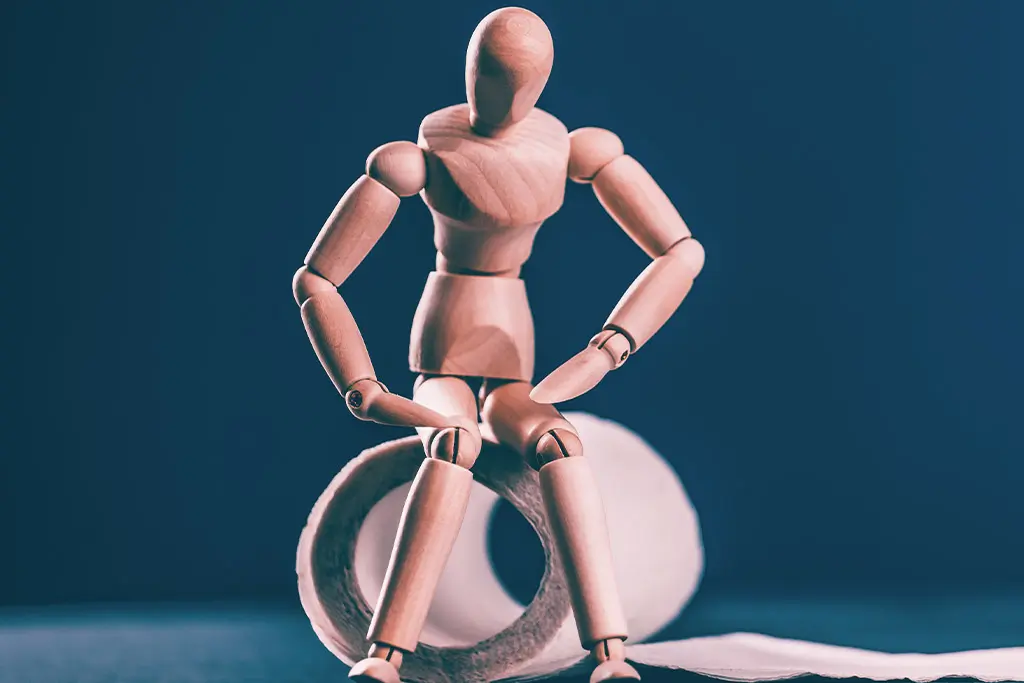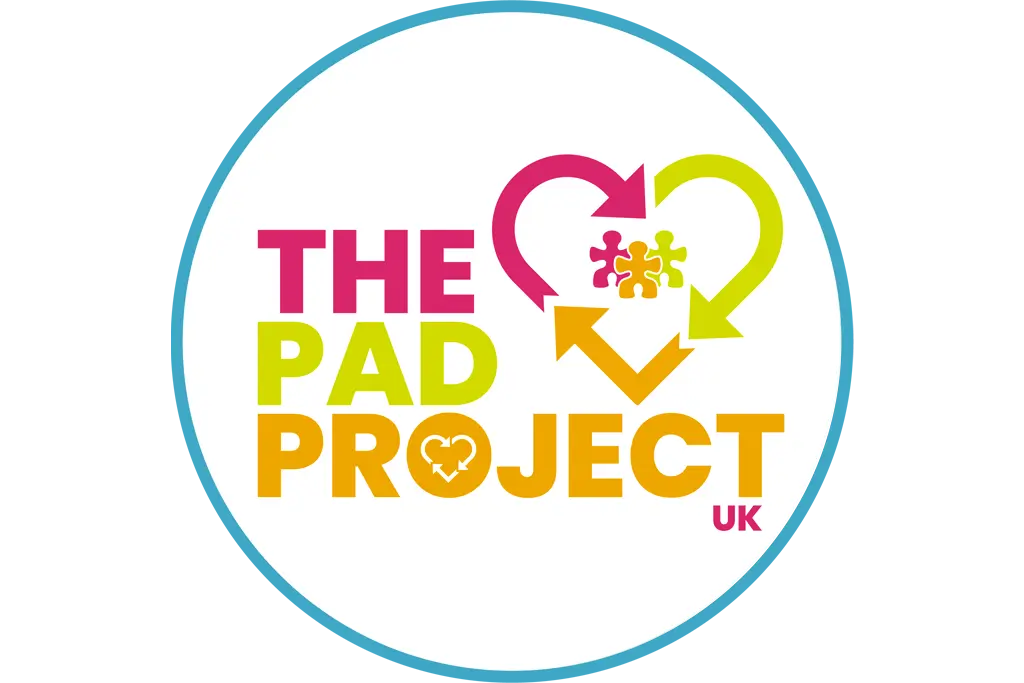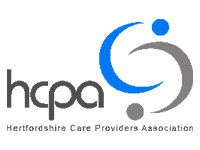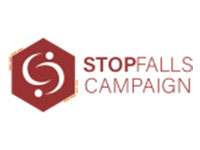Background
The formation of the health charity, The Pad Project UK, has its roots in the challenges faced on a daily basis of your average care company.
Sarah Joubert started her own domiciliary care company, By Your Side, in 2015 after she had difficulty finding care support for a close family member. And over the years, Sarah and her team have helped hundreds of clients, with various needs.
Working in this area, it soon became apparent that often clients needed extra hygiene products or pieces of equipment to live their lives. Whilst others no longer needed the equipment they had received because they got better, or their care needs changed. And like many other good care companies, Sarah and her team would often help where they could by sharing this material with those clients who needed it.
A situation that Sarah recently noted, with a smile, has resulted in her garage at home being full to the brim with various care aids, such as crutches, Zimmer frames, raised toilet seats, commodes, continence care products, and various other pieces of healthcare equipment. And is something that has now become an extremely useful resource for the company and their clients. With the care team being able to dip into this when people need additional material to help them.
This also fits in with the wider societal trend towards increased sustainability and reduction of waste. And is an issue that the National Health Service in England has been actively involved in since 2020, with the creation of the Greener NHS Programme, which aims to reduce the carbon footprint and promote sustainability in the NHS. The health care sector is often overlooked in terms of being a significant polluter, with transport and energy production widely seen as more important. Yet, high resource and energy use, along with significant plastic waste are also features of healthcare. And you only need to think about the Covid Pandemic, and millions of disposable face masks produced and then thrown away to realise the extent of
The social care sector and their vital role
Care companies and the amazing people that work for them, until recently were often the unsung heroes of the healthcare sector. But that changed significantly during the Covid Pandemic when their vital work came under the spotlight. With the public realising that they help to support millions of people in the UK to live their lives independently.
Whether this is through assistance with various ‘daily living tasks’ such as personal care (washing, getting dressed, help going to the toilet), cooking, laundry, taking medication; or other support such as companionship and taking people to see friends or family. But sadly, the profession is still underrated and widely seen as poorly paid and unglamorous. Although more people now recognise how rewarding a career it can be, in terms of job satisfaction.
Unfortunately, the care system in the UK and the NHS are under serious strain at the moment. And as a result, many people are either not receiving the care they need, or they are having to wait significant periods of time to receive support and / or treatment. And since the Covid Pandemic the pressure to save money has only increased, and this includes trying to reduce costs on basic equipment such as gloves, aprons, wipes, and hygiene products (such as pads). The burden for this falling on both companies and public institutions, as well as private individuals themselves. And this doesn’t even include the huge increase in energy costs, and the need to make reductions in this area too. With many UK charities, including SCOPE, highlighting that increased heating and water bills, along with rises in the cost of medicines and healthcare products have disproportionally affected those individuals living with disabilities.
But for all this difficult news, this does present an opportunity for forward looking and altruistic care companies and charities to make a big difference in this sector and wider society, as well as people’s lives. Whether this is through helping to redistribute unwanted medical equipment to improve sustainability in the sector or help people in real need by donating hygiene products.
Toileting and Continence care– unglamorous but vital
Although it may be embarrassing to talk about and somewhat unglamorous, helping people to go to the toilet or assist them if they are incontinent, can have a huge impact on helping people to live their life with dignity. And integral to that process are various hygiene items and equipment, which help make the issue easier to manage. Whether that is a commode by the bedside to make it simpler for someone with limited mobility to get to the toilet, or absorbent pads for an individual who may have occasional accidents.
And this is one area of health and social care that is especially resource intensive, whether that is in terms of time (spent by care workers helping individual’s) or personal care items (such as disposable gloves, aprons, wipes, pads, and waste bags). In addition to the water, energy and heating costs involved in laundry and helping to keep people clean. Yet, the importance of this can’t be overlooked, as the following quote from a client of a care company shows:
It’s horrible when I have a toilet accident, I feel so embarrassed and ashamed, and also very sad. But the care workers are so kind and help me change and have a bath. And the difference in how I feel before and after, is like night and day. Feeling fresh and clean makes all the difference. I do worry about the waste that is produced in terms of gloves and pads etc., and I have a huge bin outside my house, but what can you do? And without this support, I’d not be able to live a dignified life.
In addition to the emotional costs as highlighted above, the financial costs can also be significant. For example, research by health economists at an intensive care unit showed that each episode of patient incontinence on the ward cost the hospital around £100 in terms of nursing time and equipment costs. The financial burden on individuals living with incontinence in the community can also be very high, many of whom have to pay for all the hygiene items they need to manage the condition themselves. A situation that is often made worse by individuals not being able to buy in bulk due to the high costs and difficulties storing the items afterwards. And as mentioned above, that’s before you factor in the extra water and heating costs needed for laundry and bathing.
In the UK, patients living with incontinence in the community can be supplied with free pads by the NHS, through partnerships with commercial companies such as Essity Tena. But the criteria to meet the threshold of need has got increasingly higher over the years, with many people now no longer entitled to receive them. In addition, there is also a postcode lottery, with provision differing across the country from one local NHS Continence Service to the next.
In addition, people’s needs over time often change, with either more or less equipment being needed. And the care systems that are in place to help them are often not that flexible, meaning that there are further delays when things change. This all means that people can either be left with no products at all, or they are left with unwanted items.
This is where the Pad Project UK comes into play.

The Pad Project UK – a local ‘food bank’ for healthcare and hygiene items
Individuals
In basic terms, the aim of the Pad Project UK is to work just like a food bank, these vital organisations that help people across the country. With individuals or organisations being able to donate items at a ‘local hub’, and then people in need being able to collect them. The items could include continence pads, commodes, and anything involved in personal care management. For a more detailed list, please see The Pad Project UK pamphlets.
Sarah noted that when people have a long-term illness and have to go into a care home or sadly pass away, the task of clearing out the equipment and materials that enabled them to manage at home often falls to relatives and friends. And this can often be difficult, in terms of having to adjust to a change in situation, as well as the emotional impact. In addition, the amount and quantity of material involved can sometimes be significant, with for example many months’ worth of unused incontinence pads in multiple packets, as well as equipment like hoists and Zimmer frames. As a result, relatives often don’t know where to turn to or how to get rid of the material, with the result that much of this either ends up in Landfill or dropped off at charity shops that aren’t equipped to deal with these products. The pad project aims to offer a service to help people clear this, for a small donation if applicable, and then reuse as much of this material as possible.
And the flipside to this, then being a hub or delivery service for people who may need this same equipment and material. As a staff member of the Pad Project UK noted:
Even people lucky enough to receive pads through the NHS often have to ‘top up’ their allocation, and this can be very expensive.
It’s not a nice thing to think about, but if someone has an upset stomach for example, they may get through many more pads in a day than normal. And this can mean they fall short on pads before they are allowed to reorder new stock. The cost-of-living crisis has had a big impact on those living with disabilities, particularly individuals with incontinence, and there are many stories in the press and on online forums highlighting this issue. For example, heart breaking stories about people having to choose between buying pads or having enough food to eat. With the result that disabled people on low incomes end up having to stay at home, due to the fear of needing the toilet when out, that can have a big impact on their ability to work and socialise, which in turn often affects their mental health.
These are exactly the people that the pad project hope to help. With the aim that anyone identifying that they are in need, just like a food bank, can access this service.
Companies
As a charity the ethos will always be to put individuals in need at the centre in terms of the aims and day to day operations. However, PPUK are aware that some care organisations also struggle with the same difficulties, in terms of access to equipment and pads. Therefore, the team intend to work with them in local partnerships, in order to help in any way, we can.
The Pad Project UK team
Like all commercial or charitable entities, organisations are only as good as the people that work for them. And the Pad Project UK has a dedicated team behind them, which include the key founding members Sarah Joubert (Director of By Your Side and Charity Trustee), Alethia Shiolou (Charity Project Manager), Chris Chatterton (Expert by Experience), and our amazing Trustees.

What about items that remain unused? The aim for zero waste
Whilst the Pad Project UK aim to reuse as many of the donated items as possible, there may be certain products and equipment that due to health regulations and / or legal constraints cannot be redistributed in the UK. However, this does not mean that they will automatically be disposed of, and like other charities in the UK, the team will look at sending the best of this material and equipment to humanitarian settings abroad. With potential partner organisations having already been identified.
Therefore, the Pad Project UK aims to live up to its key mantra of ‘#Don’t Dump It, Donate’.
The future
Although having only been founded in late 2022, the Pad Project UK is already receiving product and equipment donations, along with offers of support and volunteers in its core area of West Hertfordshire. But there is no reason why this approach could not be rolled out to other areas in the UK and for the organisation to develop a Nationwide network of local hubs.







